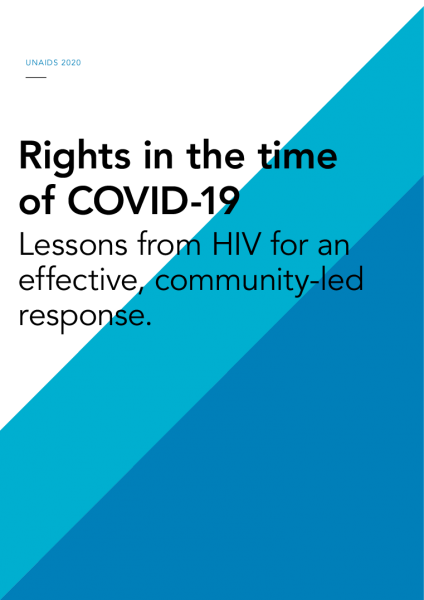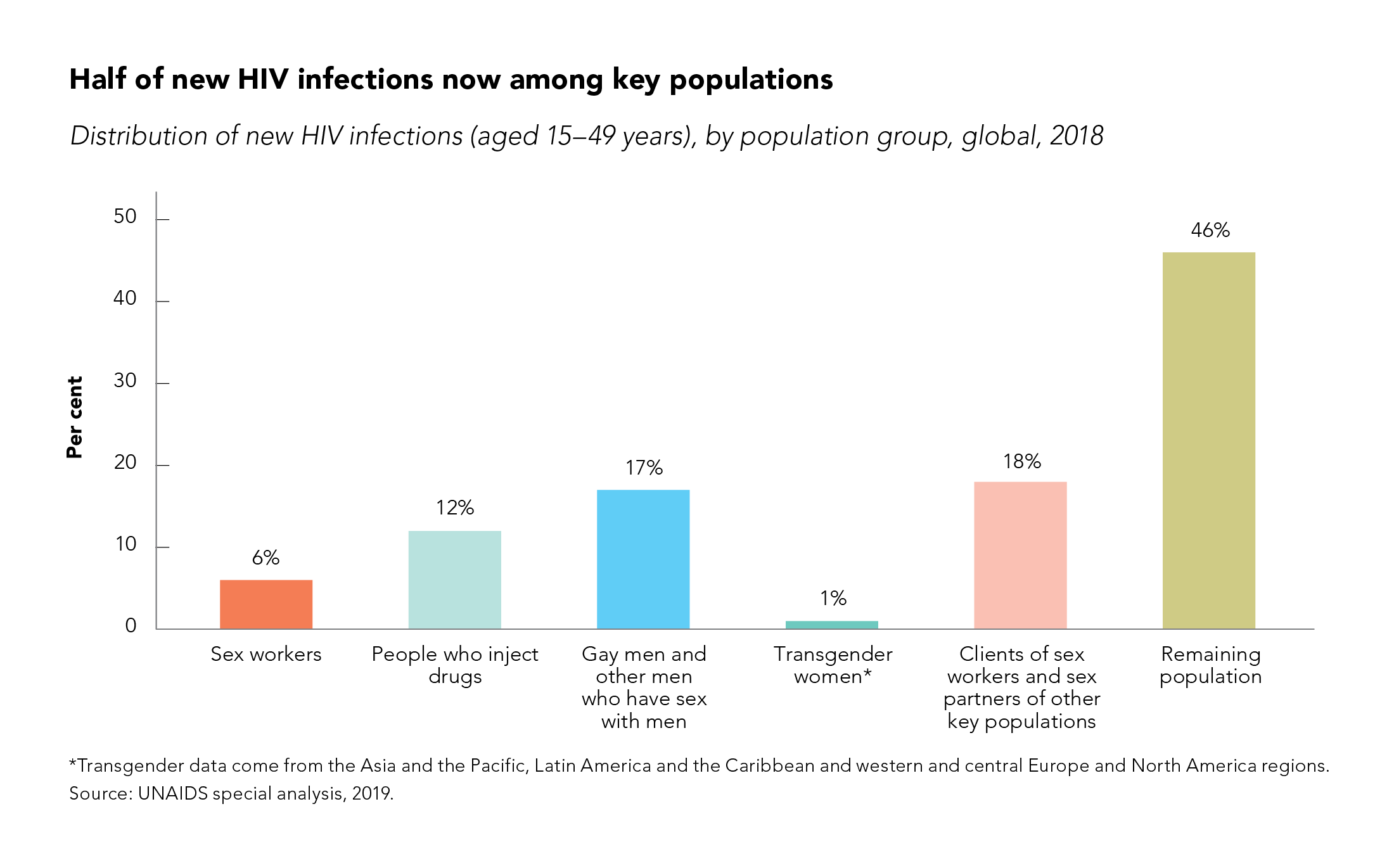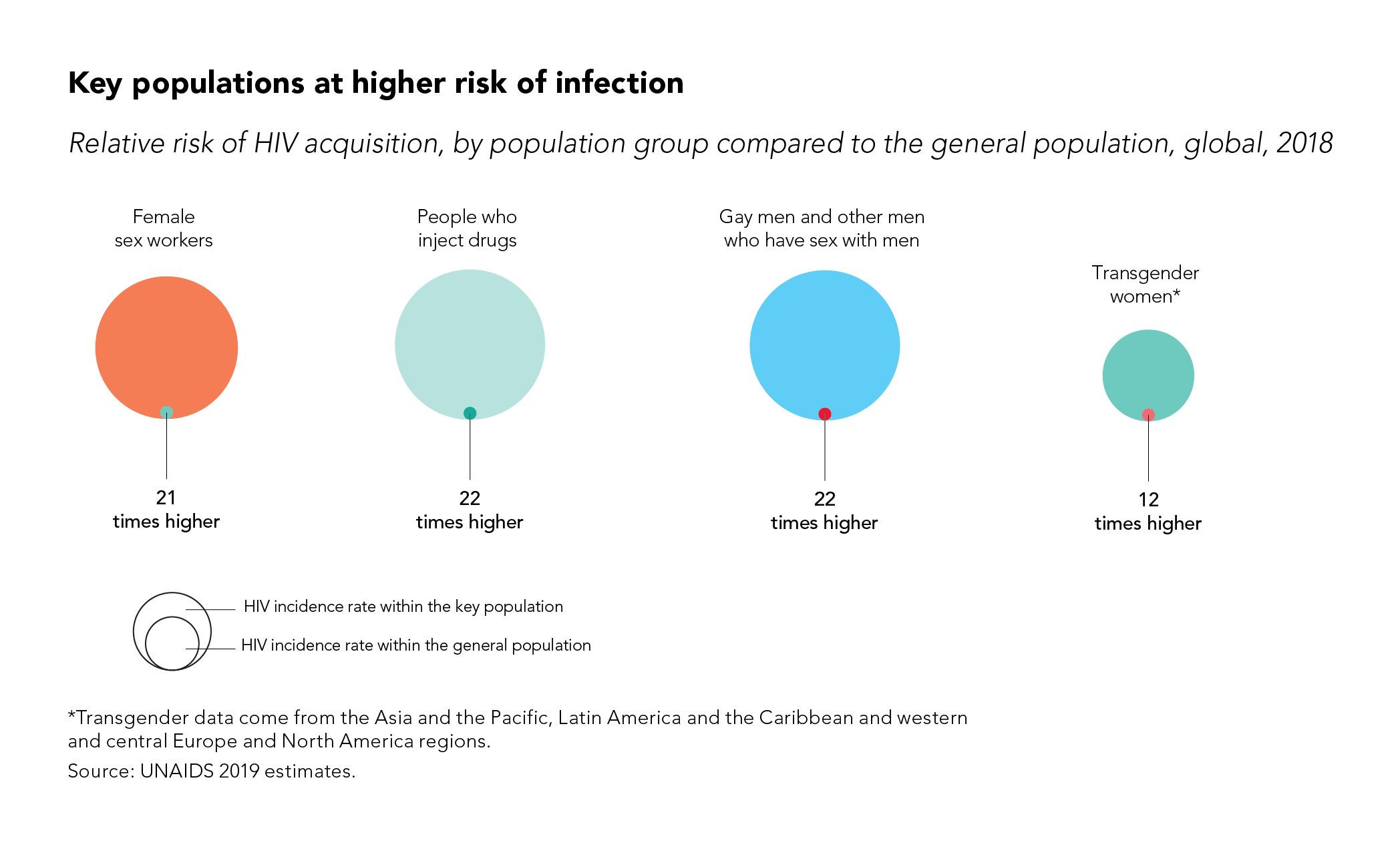Relief work is not the Humsafar Trust’s specialty, but COVID-19 has changed that.
A few days after the lockdown measures in India went into effect, the Humsafar Trust’s teams received desperate calls from people with no place to live and no income, explained Vivek Anand, Chief Executive Officer of the Humsafar Trust, a lesbian, gay, bisexual, transgender and intersex (LGBTI) people community-based nongovernmental organization based in Mumbai, India. An urgent team meeting was called to determine what to do. “After much back and forth evaluating needs, we agreed, “Let’s start with giving people food support,”” he said.
They pooled money together among themselves and bought food and other essentials.
They then reached out to their communities, telling them that the Humsafar Trust had started an emergency COVID-19 fund. In three days, more than 700 people had asked for support. “With donations from communities, allies, businesses and some donor agencies, we have helped more than 2000 individuals with food, access to medical care, like HIV medicine, financial aid and applying for government support,” Mr Anand said, beaming as his air conditioner sent waves of cold air blowing through his small home office.
He feels that during the pandemic response the LGBTI community is being overlooked. “Seventy per cent of our community comes from lower socioeconomic backgrounds with no savings,” he said.
The bulk of the Humsafar Trust’s aid is focused on transgender people, who, he said, have been the hardest hit. “Not only do they usually survive on a meagre income, a lot of them have no legal papers, making them invisible to government aid,” Mr Anand said.
The lockdown has translated into financial distress and has also resulted in mental stress. Mr Anand recounted that one member of his transgender team at the Humsafar Trust cannot introduce herself during their online outreach sessions because she is living with her parents, who consider her a boy. Others are being pressured to marry, while many have been mistreated and beaten.
Standing outdoors by a vegetable vendor to maximize cellphone connectivity, Shreya Reddy said she always wanted to be a woman. Despite being born a boy and constant ridicule and shaming, she never gave up. At the age of 13 years, she ran away and joined a hijra community, comprised mostly of transgender people. Four years later, she started transitioning gender with money she made as a sex worker. After a while, Ms Reddy said, she realized that to succeed, she needed to study. Her social work degree and background led her to the Humsafar Trust, for which she has become a peer educator and outreach worker. COVID-19 has set her back a bit for a number of reasons.
“It has been terrible, because I cannot get my hormones and I have lost weight and was bleeding,” she said. She added that because of the lockdown, no one can get regular check-ups with gynecologists. “And my community cannot understand all the rules and the science language. Basically, a lot of people like me are struggling a lot, from not being able to pay rent to buying bare necessities,” Ms Reddy said.
Speaking more and more quickly, she added, “People are not that educated, they are scared and there are lots of mistruths.”
Ms Reddy has since become better and said that she is dedicated to her outreach work. One of her transgender peers told her, “Better that I die,” once the woman’s income had melted away. "I empower myself by talking to people,” she said. “We are all so vulnerable and as a small-income population we need support.”
OutRight Action International's recent report, Vulnerability amplified: the impact of the COVID-19 pandemic on LGBTIQ people, said that the challenges faced by LGBTI people across the world as a result of the virus and containment measures were amplified compared to the broader population. Jessica Stern, Executive Director of OutRight, said, “For us the situation is dire. I fear how many LGBTI people will lose their lives because of the amplified vulnerability we face.”
Pointing to market vendors behind her, Ms Reddy said, “I have helped them too figuring out the masks and sanitizers. I help everyone, but I am scared about the future.”
Mr Anand echoed her sentiment. He has had to extend the emergency fund until August.
“Every day, there is a new challenge,” he sighed. His teams, usually out and about, can’t all work online. In addition, he mentioned that more and more people are going underground, making outreach difficult.
Recalling his youth, he explained that he was a late bloomer. “I didn’t know anyone who was gay,” he said. When his secret relationship of nine years ended, he had no one to talk to. He felt lonely and abandoned. “From then on, the Humsafar Trust became my home and my family.” He added that he would not judge anyone in these tense times, reiterating that his first duty was to help others.
What he really wants is that the transgender community be part of the narrative. “Give them a voice, let them be seen and include them in the picture,” he said.





